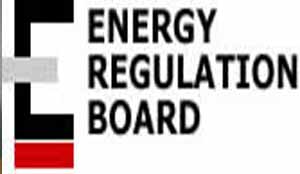 By JAMES KUNDA? –
By JAMES KUNDA? –
LOCAL consumer rights groups have said the marginal decrease in fuel prices announced by the Energy Regulation Board (ERB) recently, is negligible.
But the Government has defended the decision by ERB describing it as logical owing to the costs incurred in the procurement process of petroleum.
ERB announced fuel price reduction last week following the plummeting crude oil prices on the international market.
The uniform pump prices per litre for petrol decreased to K10.38 from K10.63 per litre, diesel reduced to K9.73 from K10.01 per litre and kerosene was pegged at K7.21 from K7.48, per litre.
Speaking in an interview yesterday, however, Zambia Consumer Association (ZACA) executive director Samuel Simutunda said the reduction in the pump prices for fuel was too minimal and offered consumers little or no benefit.
“We do not agree with the recent decrease in fuel prices as it is meaningless in view of the current favourable factors that should have led to a more significant reduction,” Mr Simutunda said.
He noted that while crude oil prices had continued to tumble,other countries like South Africa were concurrently reducing prices for petroleum.?Separately, the Consumers Unit Trust Society (CUTS) International Zambia centre coordinator Simon Ng’ona said the decrease in the pump price of petroleum did not correspond to market?forces locally and internationally.
“We do not understand why fuel cannot be reduced further as crude oil prices are much lower and the Kwacha has appreciated favourably against the United States Dollar,” he said.
Mr Ng’ona said ERB still had an option of reducing prices further in line with market forces and bring stability into the economy.
Mines, Energy and Water Development Permanent Secretary Charity Mwansa, however, said the move by ERB was logical owing to the costs incurred in the procurement of petroleum.
Ms Mwansa said in a separate interview that when coming up with the new price for fuel, ERB applied a model that took into consideration the procedure involved in importing the commodity into Zambia.
“The cost of importing fuel for landlocked countries like Zambia is relatively high as compared to those near the shores and this is why the reduction has been minimal despite falling crude oil prices internationally,” Ms Mwansa said.
She said if ERB had effected a higher reduction, Government would incur more loses as the cost of importing petroleum was colossal.
Ms Mwansa, however, said the Government would continue to pursue avenues that would lead to a continuous reduction in fuel prices.






